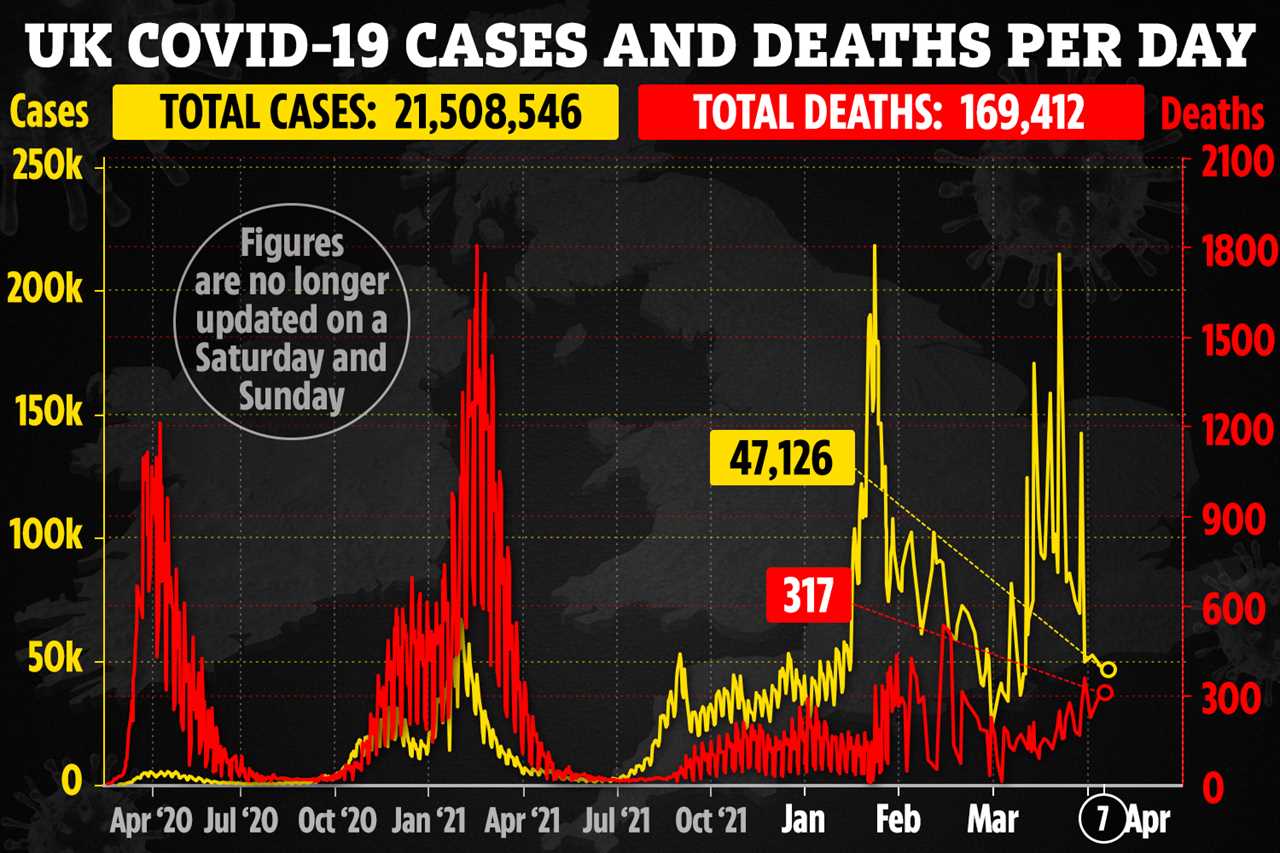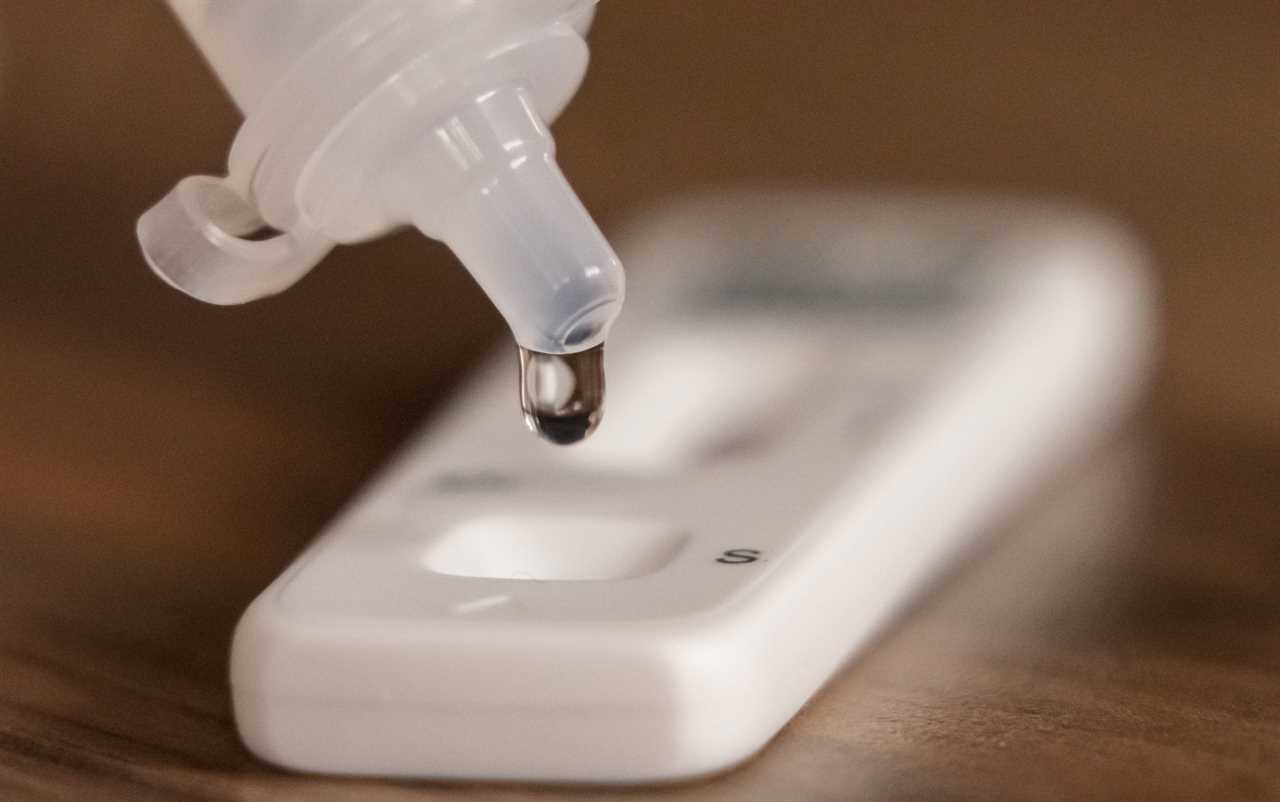DAILY coronavirus infections have dropped by 52 per cent in the last fortnight, new data has revealed.
A further 47,126 cases have been logged today, also down 36 per cent on infections reported this time last week.

It’s a sign that the virus is receding, however testing has now also been scaled back by the government.
Only vulnerable groups have been able to access free tests as of Friday, April 1.
But experts are confident that vaccines will continue to protect people from severe illness.
Over a million people have now received a spring booster vaccine, just two weeks since the latest phase of the campaign was launched.
Read more on Covid
The NHS is continuing to urge people to come forward for a fourth dose when they become eligible, with a further 570,000 more people set to be invited next week.
The latest rollout includes the over 75s, adult care home residents and those who are immunosuppressed aged 12 and over.
Around one in 13 people are thought to have had coronavirus in the week ending March 26.
But with vaccines, anti-virals and a weaker strain of the virus, Brits are well protected.
Dr Nikki Kanani, GP and deputy lead for the NHS Covid-19 vaccination programme said that as infections rise, it’s vital the most vulnerable get their boosters.
Recent research from the UK Health Security Agency showed that the NHS booster programme has helped prevent around 197,000 hospitalisations since mid-December.
The Omicron variants have been proven to cause a more mild disease, and public health officials have previously said that high case numbers shouldn’t translate to a surge in hospital admissions or deaths.
Today a further 317 deaths within 28 days of a positive coronavirus test were reported.
New figures published by the UK Health Surveillance Agency have revealed that hospital admissions from Covid in the UK are at the highest levels they have been since January 2021.
Admissions among older people are continuing to drive the increase, with all age groups over 65 recording rates last seen during the second wave of the virus in the early weeks of last year.
By contrast, rates for children and young adults are still well below the level reached at the beginning of 2022.
However, separate data published on Thursday shows that nearly three in five patients in England who have tested positive for Covid-19 are being treated primarily for something else – the highest level so far.
KNOW THE SIGNS
As infections continue to circulate, it’s key that you know the main signs of the virus.
The NHS last week updated its symptom list which is now more inline with what many people have experienced when they have had the illness.
The BA.2 Omicron strain is the most dominant in the UK right now, and spreads faster than variants seen before.
Its symptoms are the same as its sister Omicron, typically causing a cold or flu-like illness.
Previously, the classic three signs of the disease, which warranted a free NHS Covid test, were a persistent cough, fever and loss of taste or smell.
Read More on Trending In The News
But now that free testing has been scrapped for the majority of people in England, the full list has been updated to:
- Shortness of breath
- Feeling tired or exhausted
- An aching body
- A headache
- A sore throat
- A blocked or runny nose
- Loss of appetite
- Diarrhoea
- Feeling sick or being sick
- Fever
- Cough
- Loss or change to sense of smell or taste










